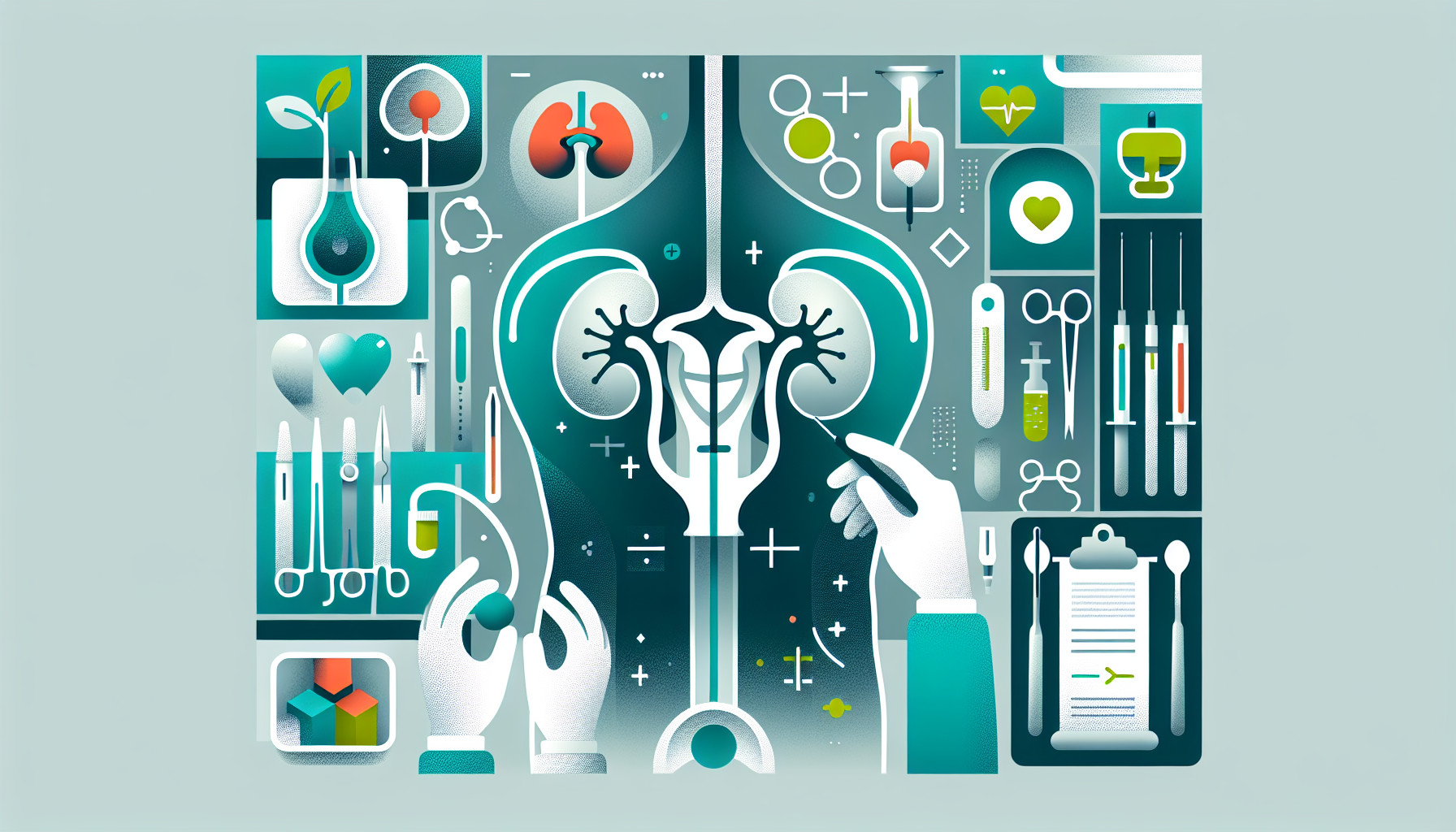Our Summary
This study looked at the outcomes of bladder cancer patients who had a specific type of surgery called a radical cystectomy with a cutaneous ureterostomy at the Mayo Clinic between 2016 and 2021. This type of surgery involves removing the bladder and creating a new way for urine to leave the body through the skin. The patients in the study were mostly older and had a high rate of other health conditions. The results showed that the patients recovered relatively quickly from the surgery, with most being able to eat a regular diet and pass gas within three days, and being able to leave the hospital within four days. However, many patients experienced serious complications within a month of the surgery, most commonly a severe infection called sepsis. About a third of patients had to be readmitted to the hospital within three months of the surgery, and three needed follow-up operations. One patient died from causes not related to bladder cancer. The study concluded that this type of surgery could be a good option for high-risk bladder cancer patients, but that doctors should consider placing a long-term stent to prevent blockages in the urinary tract.
FAQs
- What does a radical cystectomy with a cutaneous ureterostomy involve?
- What were the most common complications experienced by patients after undergoing this type of surgery?
- What was the recovery time for most patients who underwent a radical cystectomy with a cutaneous ureterostomy?
Doctor’s Tip
A helpful tip a doctor might give to a patient with a ureterostomy is to carefully monitor for any signs of infection or blockages in the urinary tract. It is important to follow up with your doctor regularly and report any symptoms such as fever, chills, abdominal pain, or changes in the color or odor of urine. Additionally, staying well-hydrated and maintaining good hygiene around the stoma can help prevent complications. If you have any concerns or questions about your ureterostomy, do not hesitate to contact your healthcare provider for guidance and support.
Suitable For
Patients who are typically recommended for ureterostomy include those with bladder cancer who are considered high-risk due to their age, overall health status, or other medical conditions. Ureterostomy may be recommended when other treatment options have not been successful or when the cancer has spread to a point where removal of the bladder is necessary. Patients who are unable to undergo other types of bladder reconstruction surgeries may also be candidates for ureterostomy. It is important for patients to discuss their individual circumstances with their healthcare provider to determine if ureterostomy is the best treatment option for them.
Timeline
- Before ureterostomy:
- Patient is diagnosed with bladder cancer and undergoes various tests and consultations with doctors to determine the best course of treatment.
- Patient undergoes a radical cystectomy, which involves removing the bladder and creating a new way for urine to leave the body.
- Patient is discharged from the hospital within a few days of the surgery and begins the recovery process at home.
- After ureterostomy:
- Patient experiences relatively quick recovery, with most being able to eat a regular diet and pass gas within three days post-surgery.
- Patient may experience complications within a month of the surgery, such as sepsis or other infections.
- About a third of patients may need to be readmitted to the hospital within three months of the surgery for further treatment.
- Some patients may require follow-up operations to address complications or issues related to the ureterostomy.
- Long-term stents may be considered to prevent blockages in the urinary tract and improve overall outcomes for the patient.
What to Ask Your Doctor
- What is a ureterostomy and why do I need this procedure?
- What are the potential risks and complications associated with a ureterostomy?
- How long will it take to recover from the surgery?
- Will I need any additional procedures or treatments after the surgery?
- How often will I need to follow up with my doctor after the surgery?
- Are there any dietary or lifestyle changes I should make after the surgery?
- Will I need a long-term stent to prevent blockages in the urinary tract?
- What symptoms should I watch out for that may indicate a problem with my ureterostomy?
- Are there any support groups or resources available for patients who have undergone a ureterostomy?
- What are the long-term implications of having a ureterostomy?
Reference
Authors: Nabavizadeh R, Rodrigues Pessoa R, Dumbrava MG, Packiam VT, Thapa P, Tarrell R, Tollefson MK, Jeffrey Karnes R, Frank I, Khanna A, Shah P, Sharma V, Boorjian SA. Journal: Urology. 2023 Nov;181:162-166. doi: 10.1016/j.urology.2023.08.018. Epub 2023 Sep 7. PMID: 37689248
